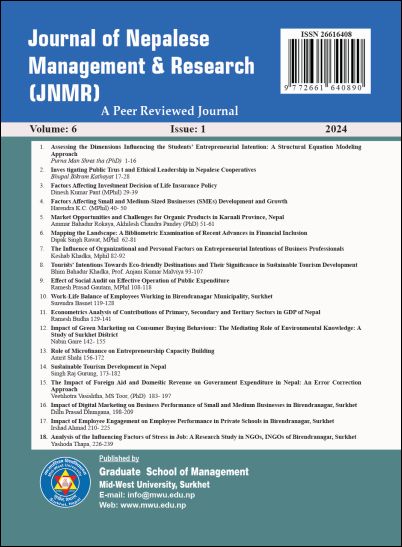Work-Life Balance of Employees Working in Birendranagar Municipality, Surkhet
DOI:
https://doi.org/10.3126/jnmr.v6i1.72088Keywords:
Working hours, working culture, leadership, remuneration, rewardsAbstract
This study examines the impact of working hours, workplace culture, leader and coworker support, and remuneration and rewards on the work-life balance of employees in Birendranagar Municipality, Surkhet. Using an explanatory research design and quantitative approach, data was gathered via a survey questionnaire with a five-point Likert scale. The study included a purposive sample of 180 employees. Results indicate that while working hours and workplace culture did not significantly influence work-life balance, leader and coworker support (LCS) and remuneration and rewards (RNR) emerged as critical determinants. LCS showed a strong positive correlation with work-life balance, underscoring the importance of supportive leadership. Similarly, fair remuneration and rewards positively impacted work-life balance, emphasizing the significance of equitable compensation practices. Recommendations include enhancing leader and coworker support systems and improving remuneration and reward structures to promote employee well-being and organizational effectiveness. Fostering a positive workplace culture that supports flexibility and mutual respect is also advised to enhance the overall work-life balance among employees.




